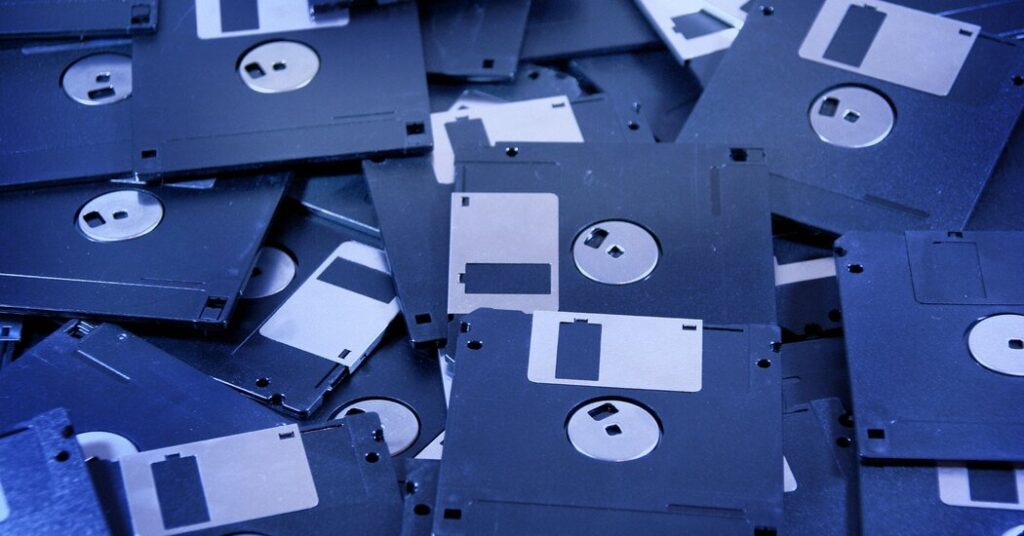Japan this week scrapped all rules requiring the use of floppy disks for administrative purposes, catching up with the times 13 years after the country’s manufacturers produced the last devices.
Invented in the 1970s, floppy disks were once a ubiquitous part of computing. Since then, other forms of memory, such as flash drives and Internet cloud storage, have come to dominate. In the 1990s, it slowly joined the cassette tape on its way to the dustbin of obsolete technology.
But not in Japan. While the country is known for its consumer electronics giants, robots and some of the world’s fastest broadband networks, it has also relied on floppy disks and other old technologies like fax machines and cash.
Just two years ago, when Japan’s digital minister Taro Kono declared a “war on floppy disks,” Japan began to abandon the storage device of the 20th century, that is, the plastic-wrapped magnetic disk.
When he saw a picture of a highway billboard for a cancer clinic in the United States that read: “If you knew what a floppy disk was, it might be time for a cancer screening,” Mr. Kono responded on social media: “No, not necessarily in Japan.
In the southern town of Tsuwano, accounting department officials did not replace a pile of floppy disks until April 2023, according to Nobuyuki Koto, one of the officials.
He said the town’s new database will take some time to set up, but the switch is inevitable and the new system is faster and more accurate.
Businesses of all kinds – mines, oil companies, retailers, liquor stores, shopping malls – are subject to different rules that require them to submit documents to regulators via floppy disks.
According to the Digital Ministry, more than 1,000 floppy disk-mandating laws, regulations and directives remain on the books even though Sony, once a major manufacturer of magnetic disks in the Japanese market, stopped producing floppy disks in 2011.
On Wednesday, Mr. Kono declared victory in the war. All of those provisions were reviewed by lawmakers, public commented, voted on and rejected, he said.
The last rule related to used car recycling and was repealed on June 28, he said.
Outside the government, some industries in Japan aren’t ready to let go.
Motoshi Honda, an analyst at the Kyoto City Institute of Industrial Technology, said the traditional textile industry in one area of Kyoto, which produces products such as kimonos, has mostly not updated its technology since the introduction of floppy disks in the 1980s.
Yusuke Murayama, a spokesman for Higo Bank, a regional financial institution on the island of Kyushu, said the bank handles nearly 300 floppy disks a day, which weigh nearly 10 pounds.
He said the bank has tried to persuade customers who still use disks to store bank account information to switch formats, telling them it will stop accepting the disks in the spring.
Floppy disks still exist outside of Japan. They are used by the embroidery and avionics industries, and until recently the United States’ nuclear arsenal also used them.
Within the government, Mr. Kono’s work is not yet done. He said fax machines, still widely used in Japan, were on his radar. He suggested using email instead.
In Tsuwano, where the accounting department upgraded from floppy disks last year, office fax machines are often still the fastest way to send messages, said Mr. Koto, a city official. Officials faxed the names of the deceased to newspaper obituary departments and used the machines to communicate with local businesses.
“Sometimes, people don’t notice emails,” Mr. Eto said.
But even after finally getting rid of floppy disks, there were things he missed about the old system.
“There is no risk of being hacked,” he said. “Now we have to be careful about data security.”

